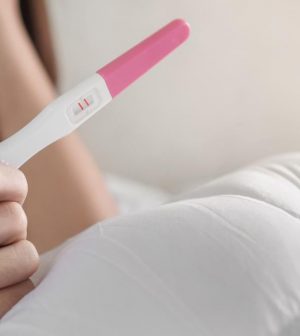- Could Your Grocery Store Meat Be Causing Recurring UTIs?
- Are You Making This Expensive Thermostat Error This Winter?
- Recognizing the Signs of Hypothyroidism
- 10 Strategies to Overcome Insomnia
- Could Artificial Sweeteners Be Aging the Brain Faster?
- Techniques for Soothing Your Nervous System
- Does the Water in Your House Smell Funny? Here’s Why
- Can a Daily Dose of Apple Cider Vinegar Actually Aid Weight Loss?
- 6 Health Beverages That Can Actually Spike Your Blood Sugar
- Treatment Options for Social Anxiety Disorder
Women Can Incur ‘Catastrophic’ Bills for Out-of-State Abortions, Study Finds

One piece left out of the abortion debate is the high transportation and medical bills facing women forced to leave their state to obtain the procedure.
A new study is the first to give hard numbers on those concerns.
It finds that, even before the fall of Roe v. Wade, 65% of women who traveled to another state to undergo abortion incurred “catastrophic” bills causing them to cut back on other necessities of life.
Especially for women from poorer households, these expenses “can be devastating and long-lasting … triggering high levels of debt, financial insecurity, worsened health outcomes and increased impoverishment,” noted a team led by Ortal Wasser. She’s a researcher in the school of social work at New York University in New York City.
As Wasser’s team explained, prior research has found that women seeking abortion are disproportionately uninsured and from low-income households.
The new study looked at data from before the Supreme Court’s Dobbs decision, which overturned Roe v. Wade.
Even before that 2022 ruling, restrictive laws in various states had forced women to travel to obtain an abortion.
Wasser’s group focused on 2019 data, gleaned from questionnaires 675 women filled out while waiting for an abortion at clinics in California, Illinois and New Mexico. More than two-thirds were seeking an abortion before or at 12 weeks of pregnancy.
Prior research has found that women who travel to seek out an abortion typically spend a third of a month’s income doing so.
“Studies have also documented that, to pay for abortion care, individuals had to take out loans, sell personal belongings and forego essential household expenditures such as food, bills and rent,” the researchers noted.
Their new study backs up those tales of hardship.
Overall, 42% of women who got an abortion, either in-state or out-of-state, incurred expenses “hindering one’s ability to meet basic needs,” the researchers said.
That number rose much higher — to 65% — when they focused on those women who also had to travel out of state for the procedure.
Having to scramble to pay bills or take out loans adds even more stress to an already stressful situation for women. As the data showed, incurring catastrophic expenses raised women’s levels of anxiety and depression significantly.
“These financial and psychological burdens encountered by patients who seek abortion care are likely even worse in the post-Dobbs context when more people must travel longer distances and out of their state of residence to access care,” the team wrote.
One solution, given current laws around abortion: Expand access to abortion care coverage via Medicaid or private insurance, the researchers said.
“The findings suggest a need to expand insurance coverage to ensure equitable access to abortion care, irrespective of people’s state of residence,” they wrote.
The study was published Nov. 8 in JAMA Network Open.
More information
Find out more about surgical abortion at Planned Parenthood.
SOURCE: JAMA Network Open, Nov. 8, 2024
Source: HealthDay
Copyright © 2026 HealthDay. All rights reserved.










